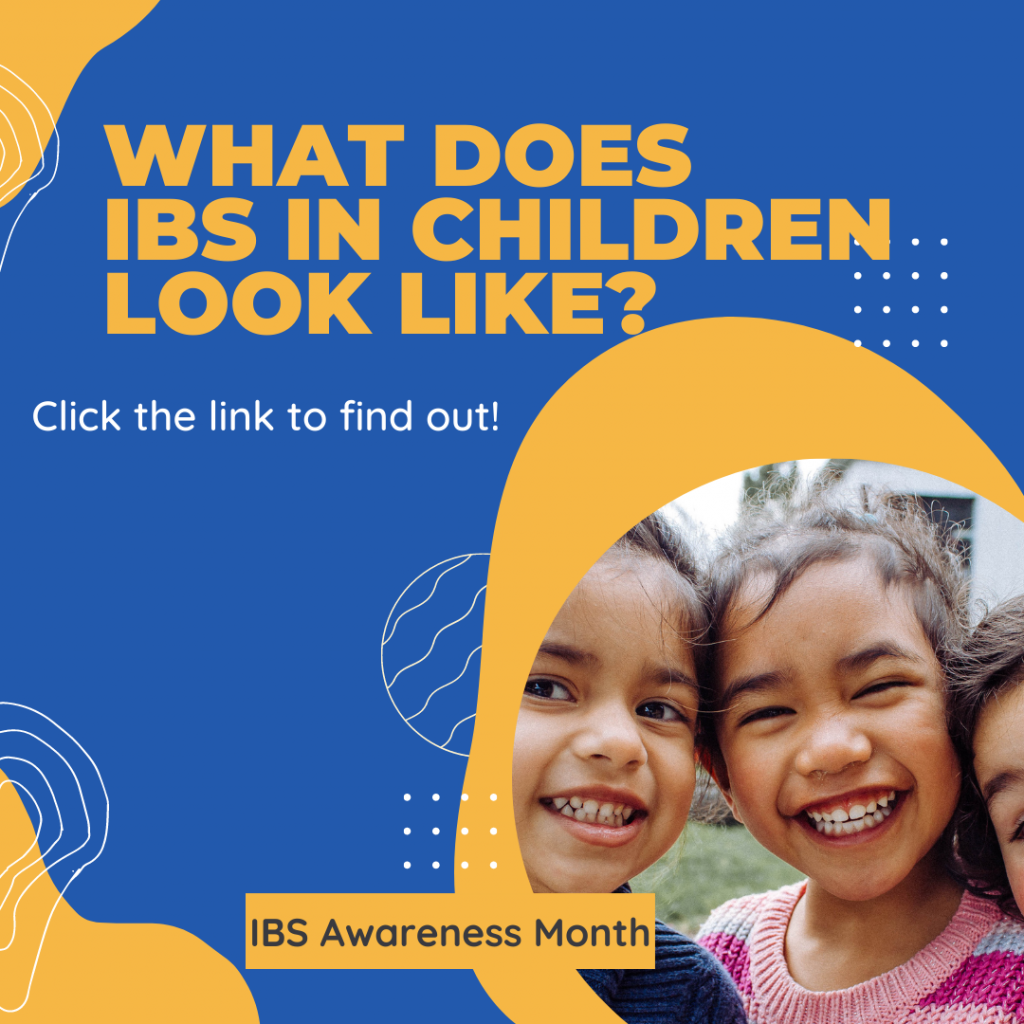11 Apr What Causes Irritable Bowel Syndrome (IBS) in Children

April is IBS Awareness Month
How Common is IBS in Children?
6-14% of the adolescent in the U.S. have IBS.
IBS is the most common cause of recurrent abdominal pain in children.
What are the Symptoms of IBS in Children?
Abdominal pain or discomfort and changes in bowel habits
To meet the definition of IBS, the pain or discomfort should be associated with 2 of the following 3 symptoms and occur at least once per week for at least 3 months:
- pain or discomfort that feels better after a poop
- pain or discomfort together with changes in how often the child has to poop
- pain or discomfort along with changes in the child’s poop: looser and more watery or harder and more lumpy than usual
Other symptoms of IBS may include:
- Diarrhea: three or more times a day
- Constipation: two or fewer poops in a week or excess straining to pass poop
- Feeling that a poop is incomplete
- Abdominal bloating
- Excess burping
- Excess farting
- Feeling full quickly when eating
What Causes IBS in Children?
The specific cause of IBS is unknown.
IBS tends to run in families.
- Foods can trigger IBS.
- Infections can trigger IBS.
- Stress and anxiety can trigger IBS.
How Is IBS Diagnosed in Children?
- The doctor will ask you and your child an extremely thorough history and perform a physical exam. Come prepared to answer lots of questions in detail.
- There is no specific test for IBS.
How Is IBS Treated in Children?
Every child’s IBS is different and requires a personalized treatment approach. The treatment for IBS in children often involves a combination of therapies:
- Changes in eating
- Changes in lifestyle
- Regular activity
- Medicines
- Counseling and coping strategies
IBS can disrupt a child’s life and cause emotional suffering and embarrassment. Talk with your child’s doctor about ways to help your child lead an active and healthy life.